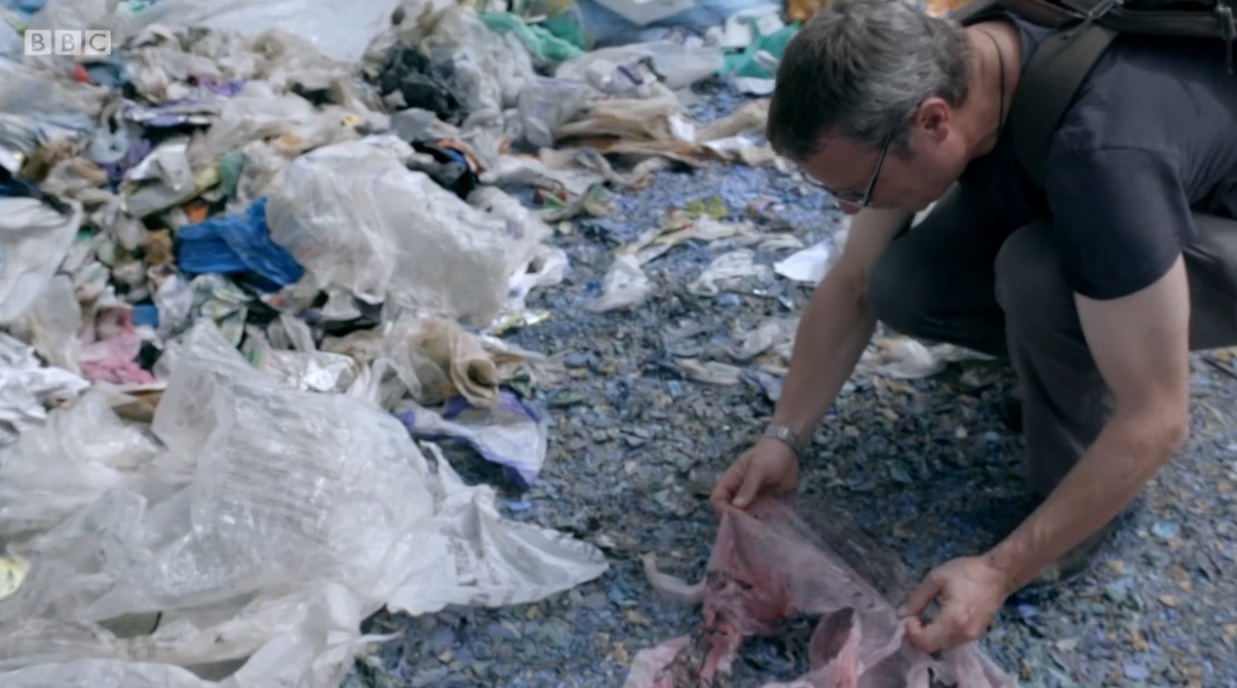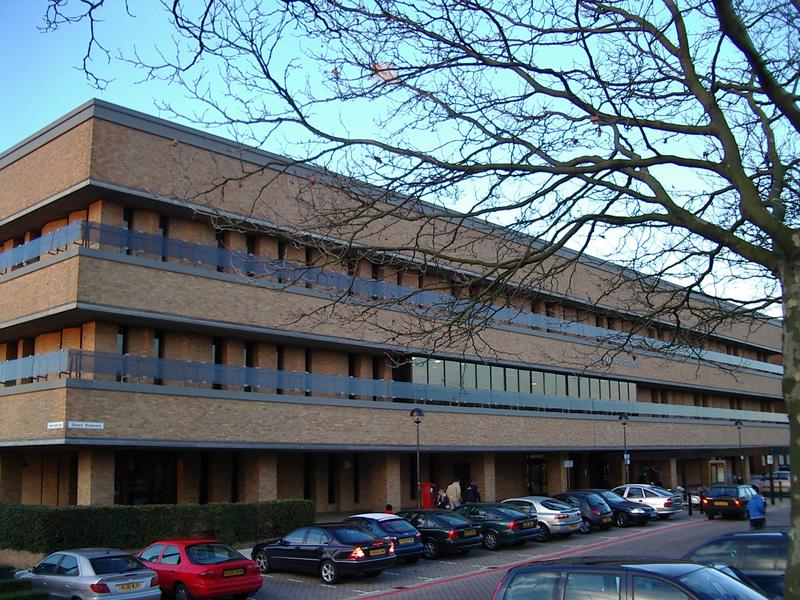A review carried out on behalf of Milton Keynes council has suggested that the local authority was not at fault over an incident that saw council-branded plastic recycling bags dumped at a site in Malaysia.
Instead it is believed that the bags may have been used outside of the council’s own collection service – and therefore their end destination could not be controlled by the local authority.

TV presenter Hugh Fearnley-Whittingstall with a Milton Keynes council recycling bag found in Malaysia (Picture: BBC)
The incident was brought to light in a BBC television documentary hosted by the TV chef and presenter Hugh Fearnley-Whittingstall, aired in June, in which he travelled to several sites to in the South East Asian country where plastic waste had been dumped (see letsrecycle.com story).
The material is believed to have been exported for recycling, but was left abandoned after the sites closed down.
Milton Keynes was among the local authorities to have been named within the documentary, due to the presence of a recycling bag bearing the council’s branding amongst other items of plastic waste.
Review
This prompted the council to instigate a full review of its recycling process in order to establish whether the material was likely to have originated from a kerbside collection carried out on behalf of the authority – carried out by the consultancy firm Wood.

Milton Keynes council commissioned Wood to review its recycling collection processes to determine whether the bags found in Malaysia are likely to have come through its own collection system
Findings of Wood’s review were published late last week, and suggests that there is ‘no evidence of a breach of legislation’ by the local authority.
The review examined the recycling collection process in place for the local authority, as well as looking at the end destinations for material collection from the city’s homes.
The report noted that the council has contracts for waste treatment and disposal with Viridor for mixed dry recycling, AmeyCespa for residual waste treatment, and HW Martins for the operation of Household Waste Recycling Centres, while household waste is collected by Serco.
As part of the review, Wood probed Wood the plastic off-takers used by the contractors to confirm the reprocessing operations they undertake.
‘Misuse’
Wood’s review concluded that due to the processes in place through the council’s own contracts, it is likely that the material found in Malaysia is likely to have originated from a non-council collection – for example from a business. According to a council report published in 2016, up to 11.7 million pink plastic bags were issued on behalf of the council every year, which it is claimed makes it difficult to guarantee that they will all be correctly used by residents.
The report concluded: “Although some recommendations are provided, no intentional or unintentional breaches of legislation by MKC or its contractors has been identified in the management of materials within the UK or in their export from the UK.
“We hope this independent report encourages people to recycle. In MK our recycling is processed properly and even our non-recyclable waste has a use, creating energy.”
“The audit supports the claim that the most likely source of the MKC recycling sacks found in Malaysia is misuse. Until recently millions of recycling sacks were issued per year in a largely uncontrolled manner through an outlet system with far fewer ending up in the MKC recycling system. In 2018 MKC introduced an online ordering system and controls with a view to reduce the number of sacks not used for their intended purpose.”
Commenting following the release of the report, Councillor Emily Darlington, Milton Keynes council’s cabinet member for the public realm, said: “The report looks in great detail into our supply chain and into the actions of our contractors and confirms that we do not export waste to Malaysia. We hope this independent report encourages people to recycle. In MK our recycling is processed properly and even our non-recyclable waste has a use, creating energy.”
The post ‘Misuse’ blamed for Malaysia plastic bag export appeared first on letsrecycle.com.
Source: letsrecycle.com Plastic


